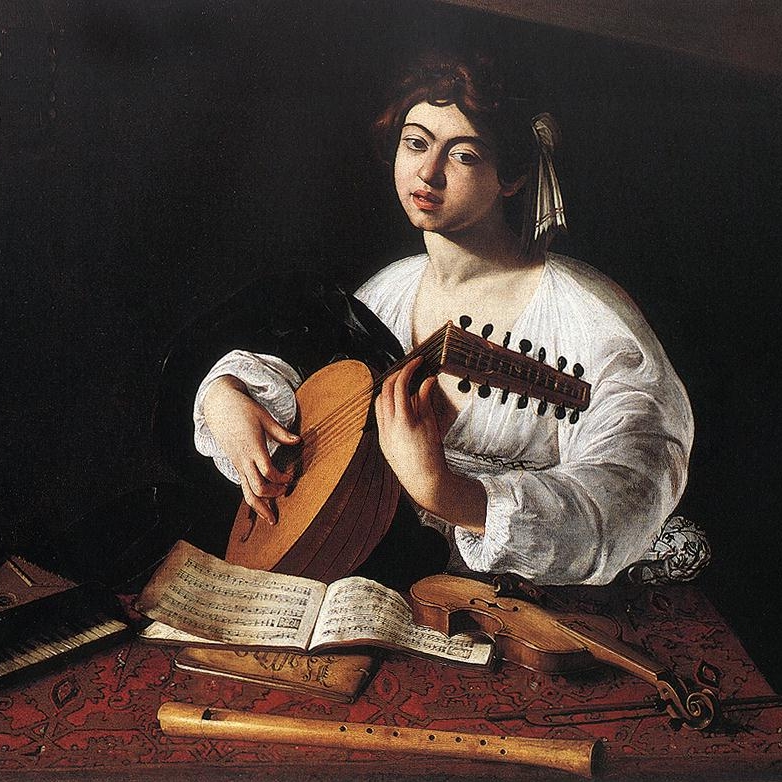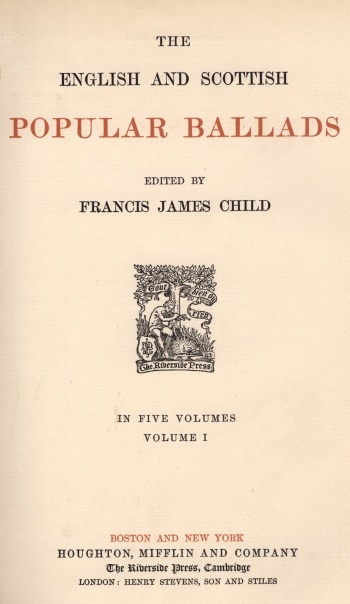True romantics will have a difficult time accepting Lord Thomas as the hero of this ballad, as he boldly states to his mistress, Annie, that he is crossing the sea to collect a bride: "With her I will get gold and gear, with you I never got none." The romantic element appears in the guise of Annie, mother of Thomas' seven children. Although certainly trapped in circumstances, with seven children and another on the way, she maintains her dignity and welcomes Thomas and his new bride home.
The hero is the bride-to-be, who remains nameless. After arriving at the castle and noting the resemblance of her new handmaiden, Annie, to her long-lost sister, she marries Lord Thomas and retires to her chamber with him. Hearing weeping through the wall, our nameless heroine goes to Annie, questions her about her parentage, thus discovering that Annie is her sister who had been stolen away by a knight who came "o'er the sea". She then hands her dowry over to Annie and her children, thanking the powers in heaven that she has not yet consummated the marriage, and returns home.
In Young Beichan we meet another hero who is less than ideal, though the circumstances of his youth make us sympathetic to him. We also meet Shusy Pye, another heroine graced with extraordinary patience and persistence. Beichan is taken captive by a Moor, mistreated and thrown in the dungeon. The Moor's lovely daughter, Shusy Pye, becomes very fond of Beichan, and after discerning his status in his own country, bribes the guards with gold and silver, takes the key and releases Beichan from his cell. She brings him food and wine and tells him that she loves him. After exacting a promise that he will return to marry her within seven years, she sends him on his way back to England.
Ten years later, Shusy's patience runs out and she sets sail for England, landing at Beichan's gates just in time for his wedding party. When Beichan hears from the porter that there is an exotic beauty at the gates asking for him, he rushes to Shusy Pye and takes her in his arms. He tells his mother-in-law-to-be to take her daughter back, and that he will return double the dowry in order to marry his first true love.
Child Waters is yet another scoundrel cast in the role of hero. When informed by Ellen that she carries his child, he first attempts to buy her off. She refuses, saying that she'd rather have one kiss, or a twinkle of his eye, than the lands he offers her. Waters then announces that he must ride into the north country to attend a ball at the home of his parents, and there choose the fairest maid to be his wife. He concedes to Ellen's plea that she be allowed to act as his page. She crops her hair, and dons boys' clothing over her advanced pregnancy, and thus begins their journey which becomes a test of Ellen's love.
Child Waters rides, while Ellen runs barefoot at his side. When they arrive at the hall, he points out his paramour to Ellen, before she goes away to tend his horse. After the evening's festivities he sends Ellen into town to find a woman for hire, to share his bed. This accomplished, Ellen then sleeps at the foot of the bed. In the morning Child Waters awakens her, telling her to go feed his horse. In the stable, Ellen gives birth to the child. Child Waters arrives and tells her that their marriage and the child's christening will be on the same day.
This ballad features yet another character of dubious heroic qualities, who after bedding the youngest of three daughters of the house, poses riddles to her, the solving of which is a prerequisite to marriage. One begins to wonder if these ballads, which feature such boorish rogues, weren't all written by women, until we reach the final lines of this ballad: "So now, fair maidens all, adieu, This song I dedicate to you. I wish that you may constant prove, Unto the man that you do love."

Ballads were particularly characteristic of the popular poetry and song of the British Isles from the later medieval period until the 19th century. ... Read more at Wikipedia.

The Child Ballads are 305 traditional ballads from England and Scotland, and their American variants, anthologized by Francis James Child during the second half of the 19th century. ... Read more at Wikipedia.